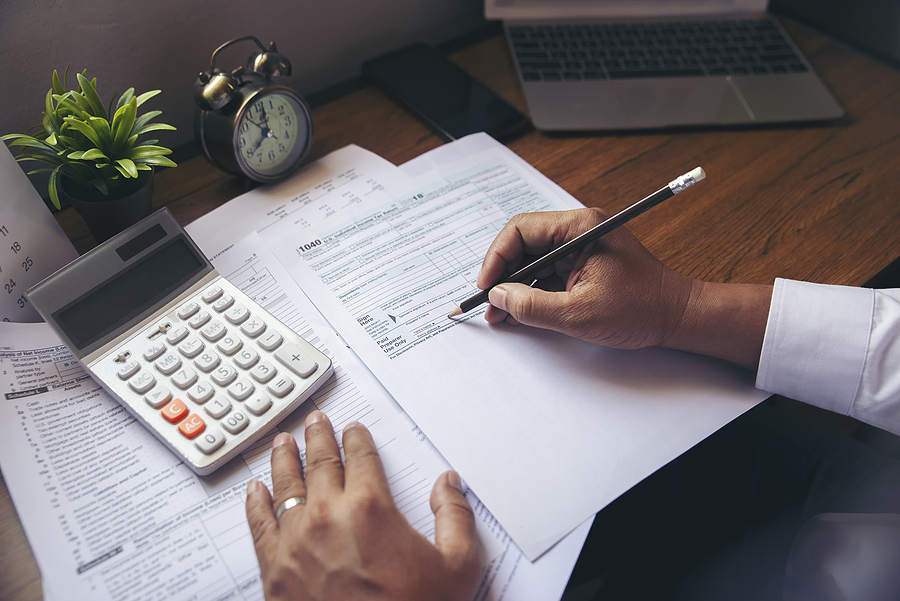Selling a property can be an exciting task as it is a big sale and can result in the inflow of a large number of funds. However, whenever there is a sale and it incurs a profit, you have to pay the dreaded capital gains tax.
Capital gains tax is the fee that is paid to the government in the form of taxes when you sell an asset at a price higher than what you paid for it. In the case of properties, this can be a significant amount.
For example, if you purchased a property for $500,000 in 2015 and sold it in 2021 for $700,000, you are looking at a healthy profit of $200,000 ($700,000 – $500,000) on which you are levied a capital gains tax. Now there are certain situations in which you can reduce paying capital gains or postpone the payment altogether, so what are these strategies?
Avoiding Capital Gains Tax on your Primary Residence
You can avoid paying capital gains tax on your primary residence as it might meet the capital gains tax exemption. This is a result of the Taxpayer Relief Act of 1997:
A single homeowner can get up to $250,000 in capital gains exemption and a couple can get $500,000 in exemption!
This is a significant amount, hence, if you are a couple and you sell your property at a profit, only the profit greater than $500,000 will be taxed!
You need to meet two very important requirements to qualify for this exemption:
- Primary Residence for 2 non-consecutive years out of a 5-year period before the sale date
- The exemption has not been used in the past 2 years
If you meet these two requirements, then you can qualify for the capital gains tax exemption and avoid paying tax on selling your home!
Now, apart from just the exemption, there are other ways to reduce the tax on your primary residence.
You can also deduct the cost of home improvements that you incurred during the years you stayed in the property. This is known capital improvement and can qualify you for a deduction.
You must meet 2 requirements to make use of the deduction:
- The home improvement drastically increases the value of the home such as kitchen remodeling, installing a new pool, or a new HVAC system.
- The home improvement is permanent and attached to the property. For example, if you get a new independent cooling unit for the home and you take it with you when you leave for your new home, you cannot claim the benefit.
Therefore, keep track of all the bills and renovation expenses as it can really help you reduce some of the tax burden in the future. Gypsy Nesters has some great ideas on home renovations that you can use!
There are certain things you should keep in mind regarding this benefit. Certain renovations do not count such as repainting the driveway, appliance repair, and minor tile change, etc. The reason being these do not satisfy point 1 of drastically increasing home value.
Avoiding Capital Gains Tax on your Investment Property
1031 Exchange is the process of selling an investment property and using the proceeds of that sale to buy another investment property allowing the seller to postpone the payment of capital gains tax on the property.
For example, if I sell a $500,000 property at a profit of $200,000 in 2021, instead of taking those funds into my bank account and paying capital gains tax on $200,000, I take the entire $700,000 and reinvest it into another investment property. This helps defer the capital gains tax payment.
Now although this seems complicated, it can work in a relatively straightforward manner. You sell your property, the funds from the sale are used to buy your next investment property and no capital gains tax is paid at that point.
In the future, when you are retired and decide you need the funds, you can sell the investment property, and pay capital gains tax on all the profit you made. The advantage is that when you are retired, your tax bracket rate will be much lower resulting in lower tax!
Charitable Remainder Trust (CRT)
This is for individuals who are retired and plan to use most of their inheritance as a donation to charity or for a good cause. A charitable remainder trust allows the individual to put the property into a trust where the charity can sell the property at a 0% tax rate once the individual passes away.
You do not necessarily need to give the whole amount to charity, there are other benefits too:
- No capital gains tax
- Steady income stream for the duration of your life
- Avoid estate tax
- Donating!
The way a CRT works is that it allows the individual to receive a steady stream of income during their retirement. Once the individual passes away the remaining value of the home is sold in the market and donated to their favorite charity!
In conclusion, there are several ways you can maximize your profit and limit your taxes on the sale of your primary residence and investment property. You should also consider the difference between short-term capital gains tax where the property is sold within one year as compared to long-term capital gains tax where the property is held for several years. In most cases, the short-term tax rate is higher than the long-term tax rate, hence, it is in your best interest to hold the property for longer than a year. In each strategy, do your research and think about liquidity and savings implications in the long run, Good luck!
Image Source: BigStockPhoto.com (Licensed)
Site Disclaimer
The Content in this post and on this site is for informational and entertainment purposes only. You should not construe any such information or other material as legal, tax, investment, financial, or other advice. Nothing contained on our Site constitutes a solicitation, recommendation, endorsement, or offer by HII or any third party service provider to buy or sell any securities or other financial instruments.
Nothing in this post or on this site constitutes professional and/or financial advice. You alone assume the sole responsibility of evaluating the merits and risks associated with the use of any information or other content in this post or on this site.
You recognize that when making investments, an investor may get back less than the amount invested. Information on past performance, where given, is not necessarily a guide to future performance.
Related Categories: Invest, Money, Reviews








